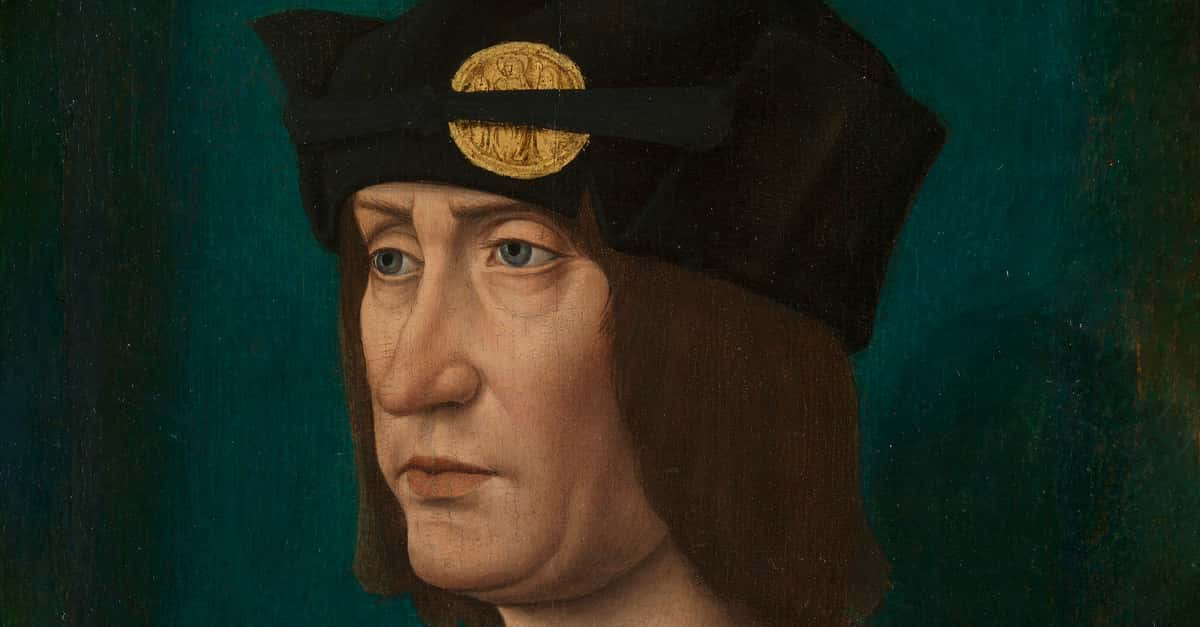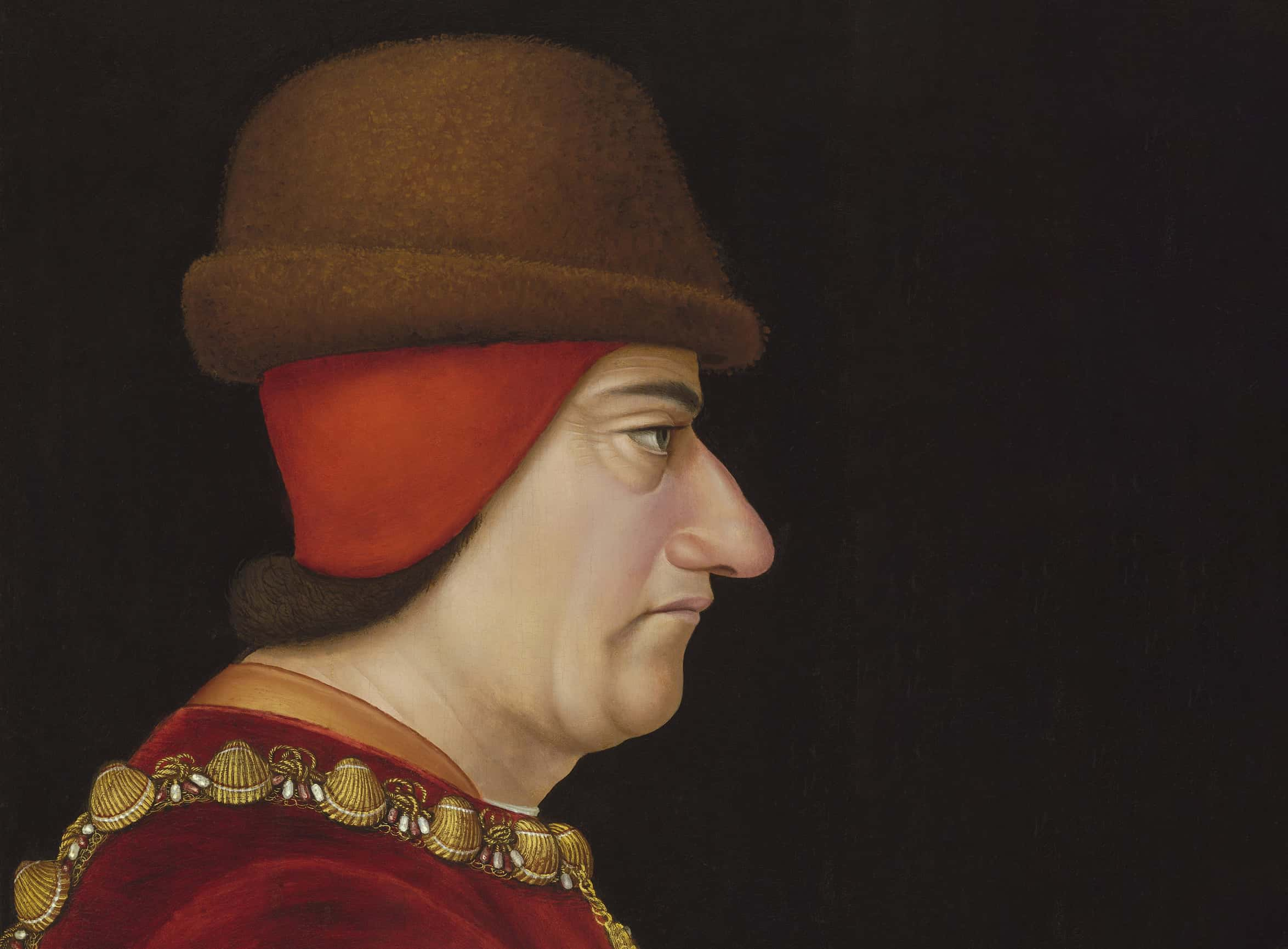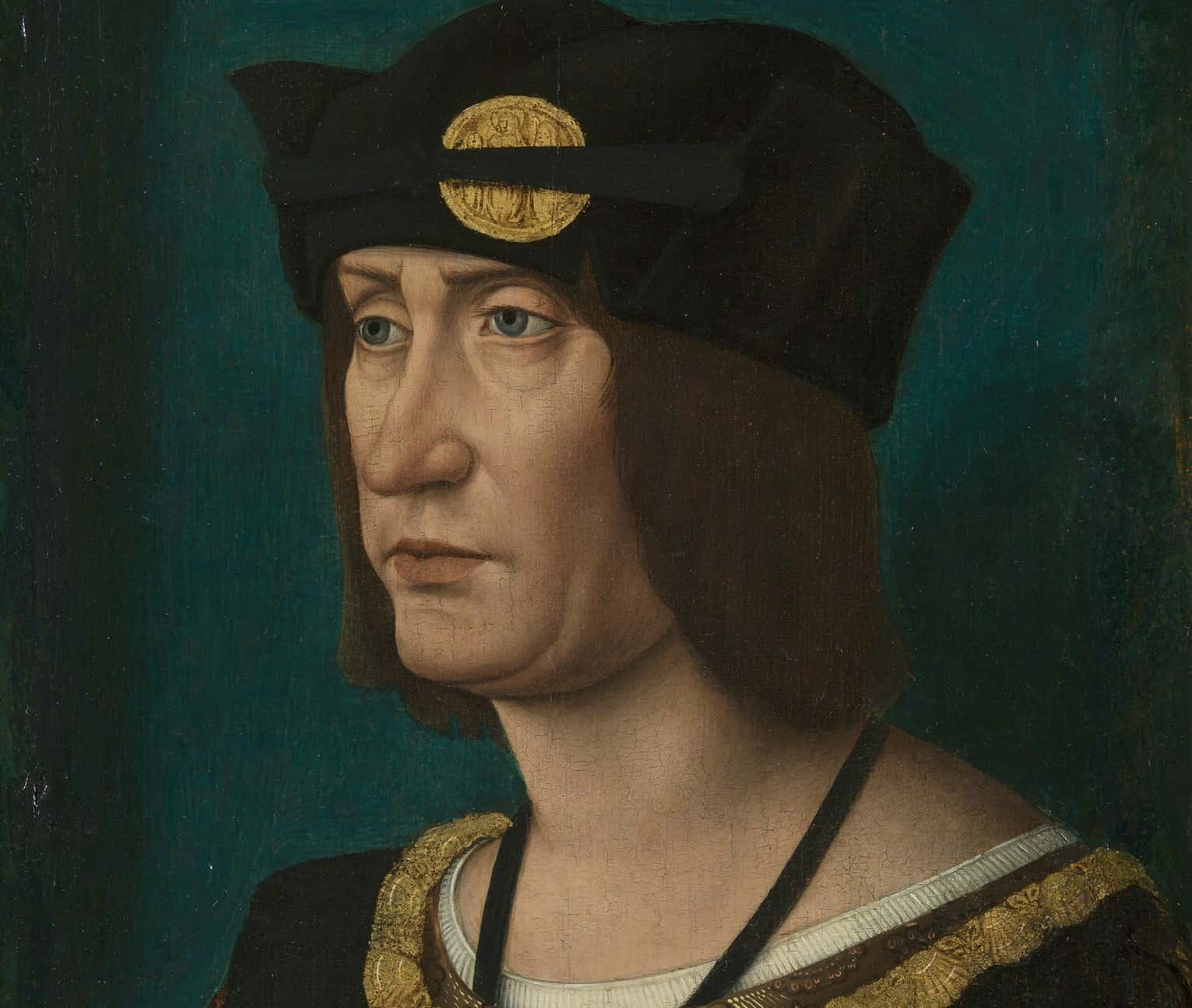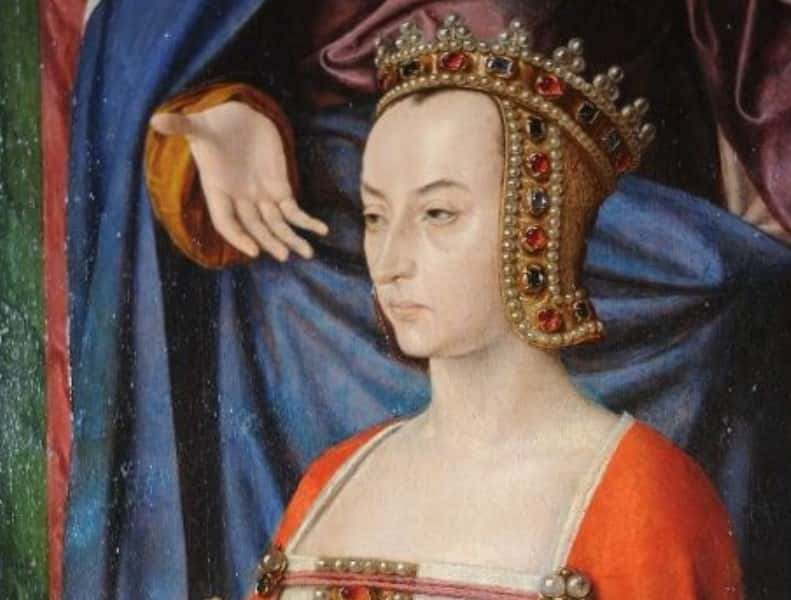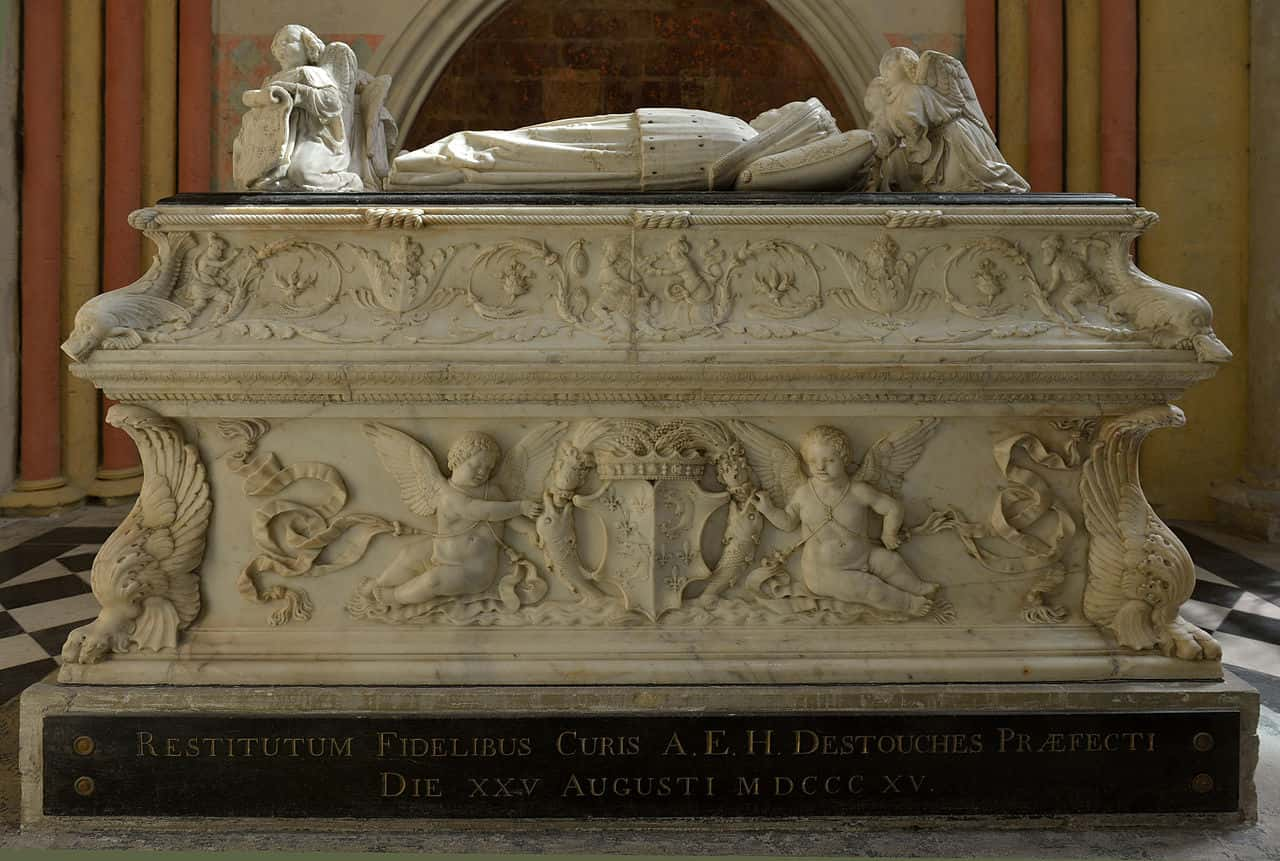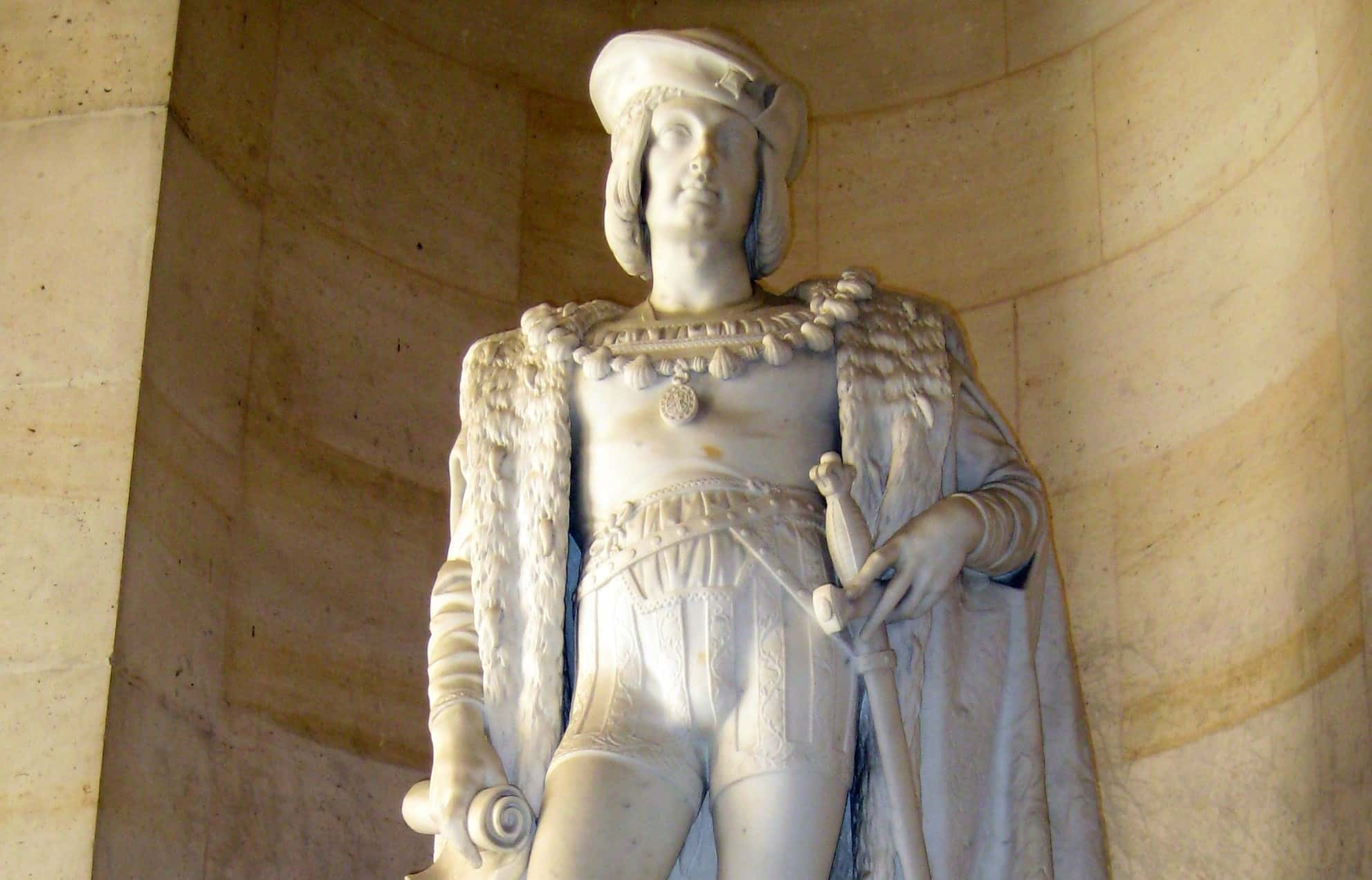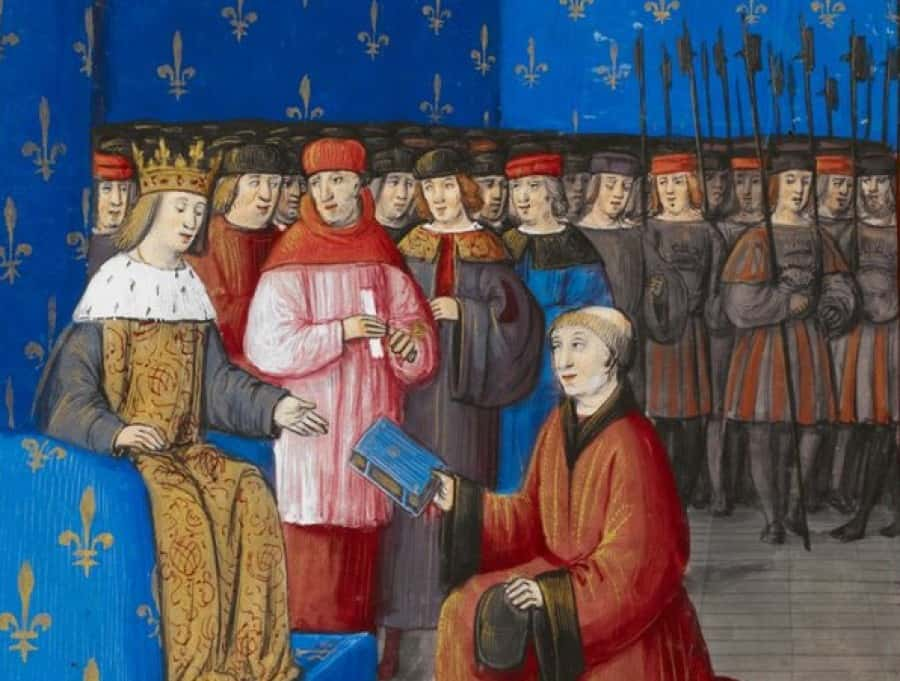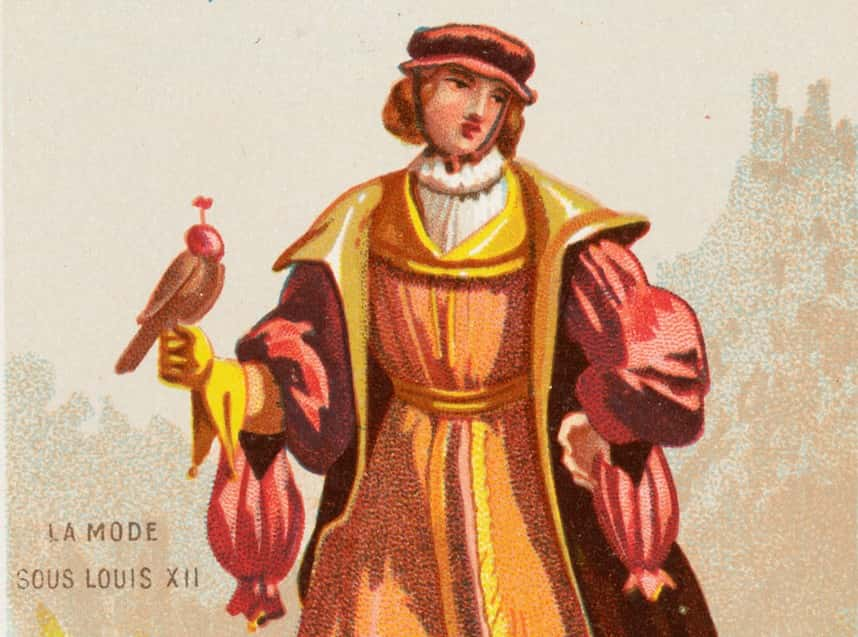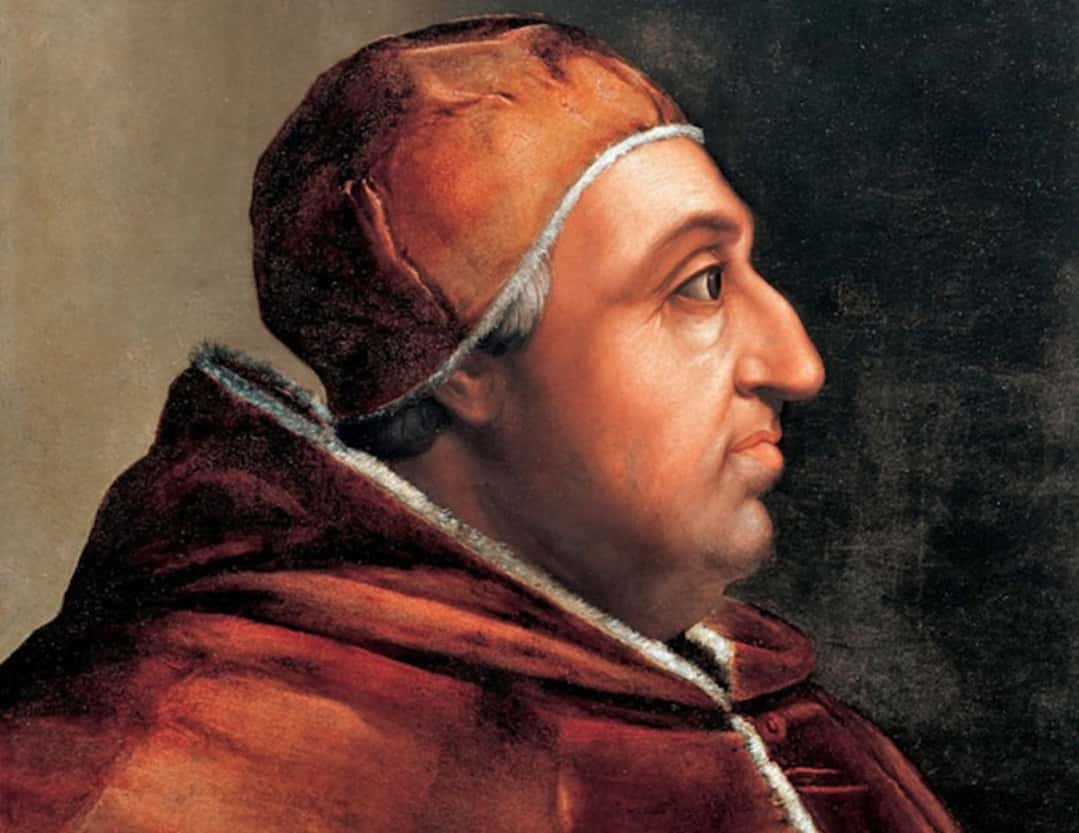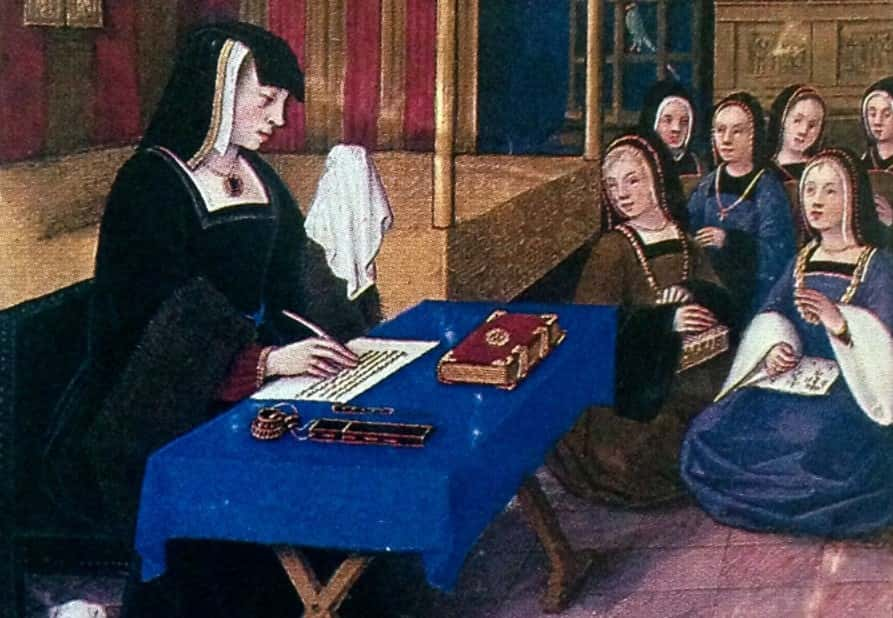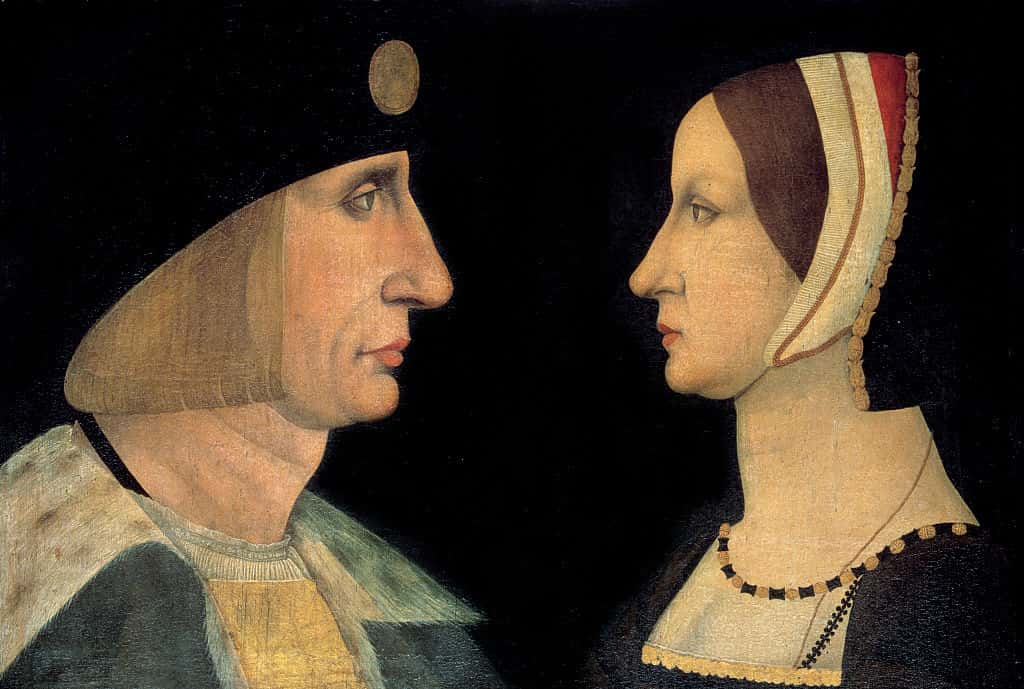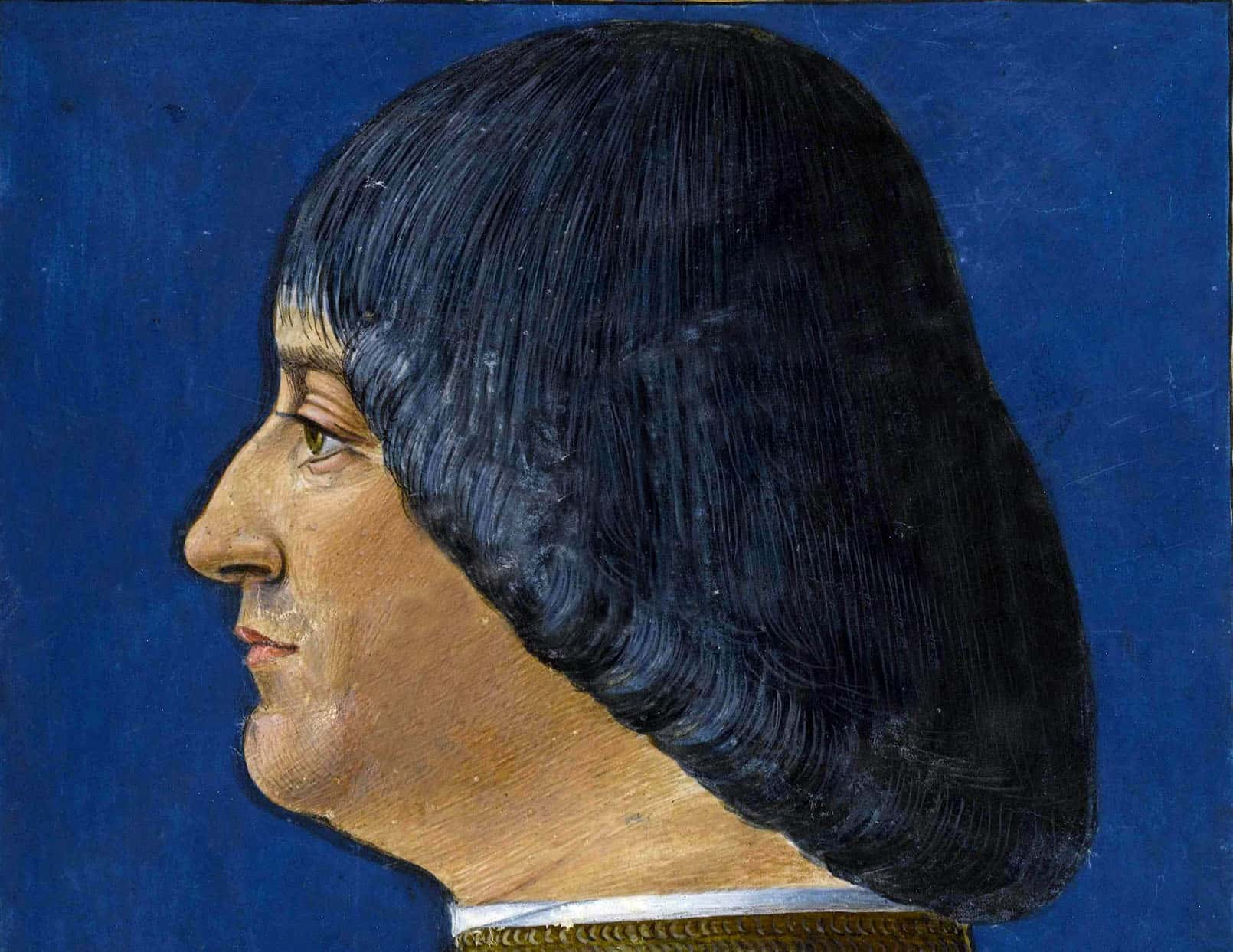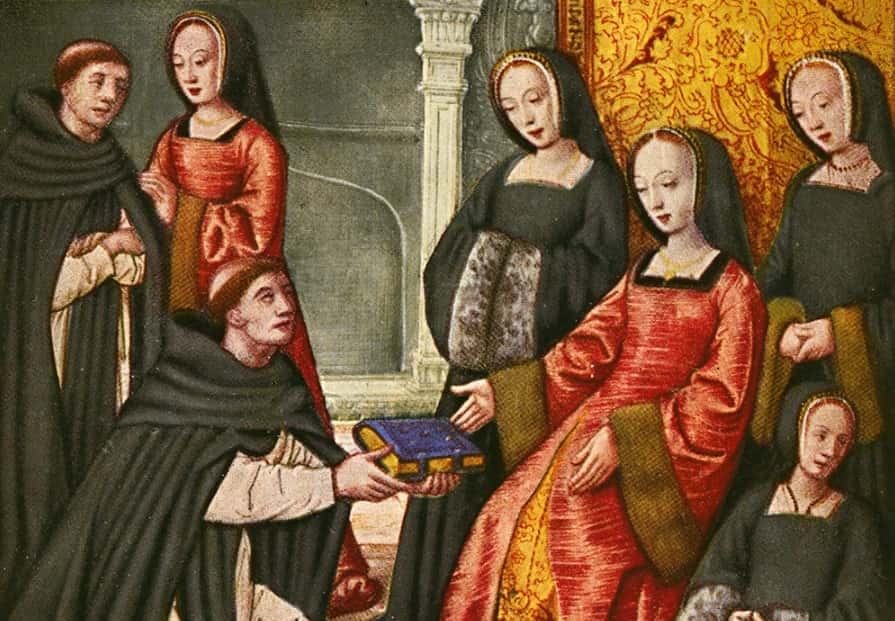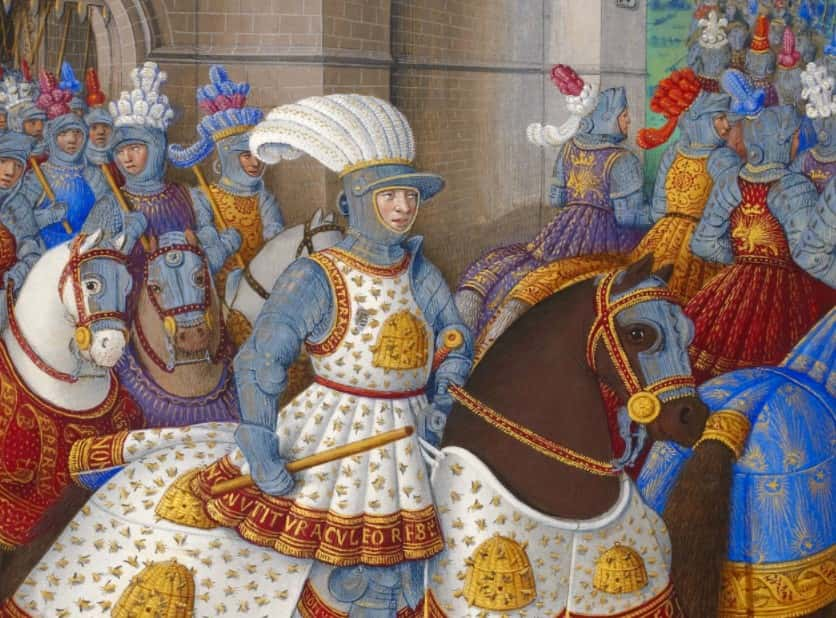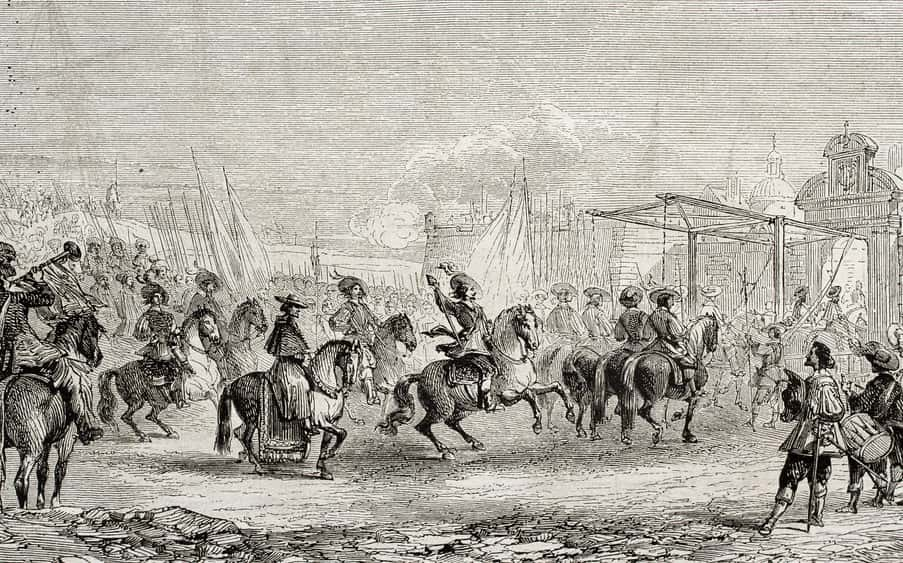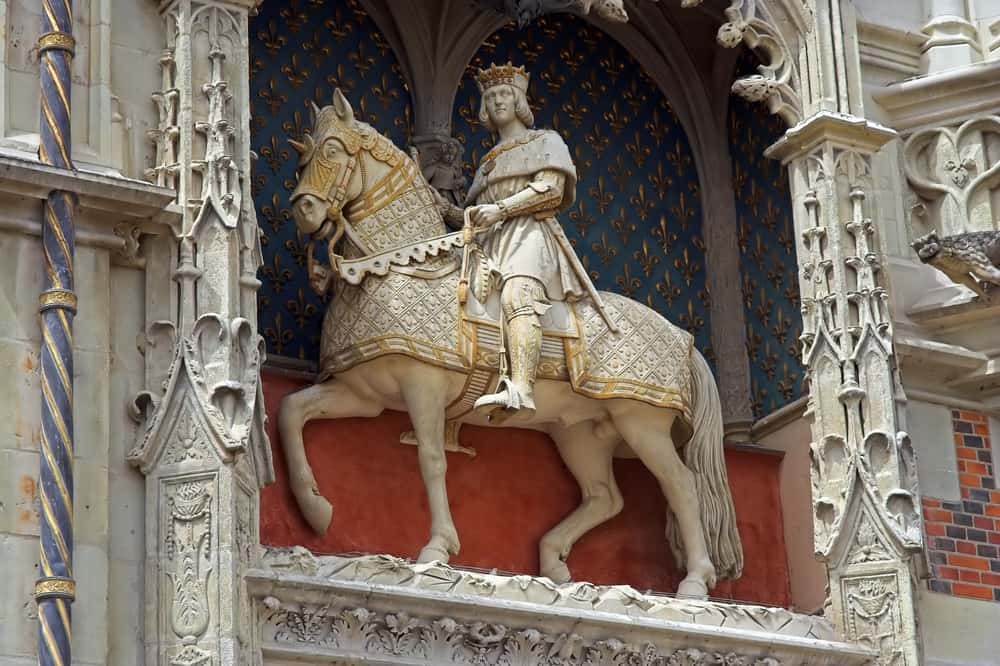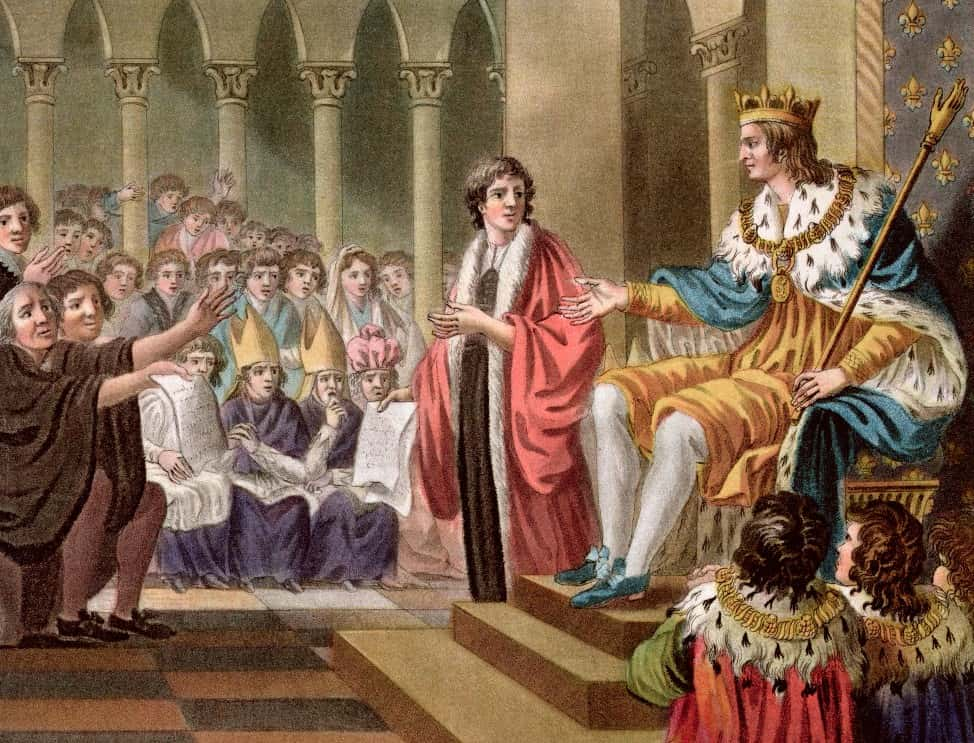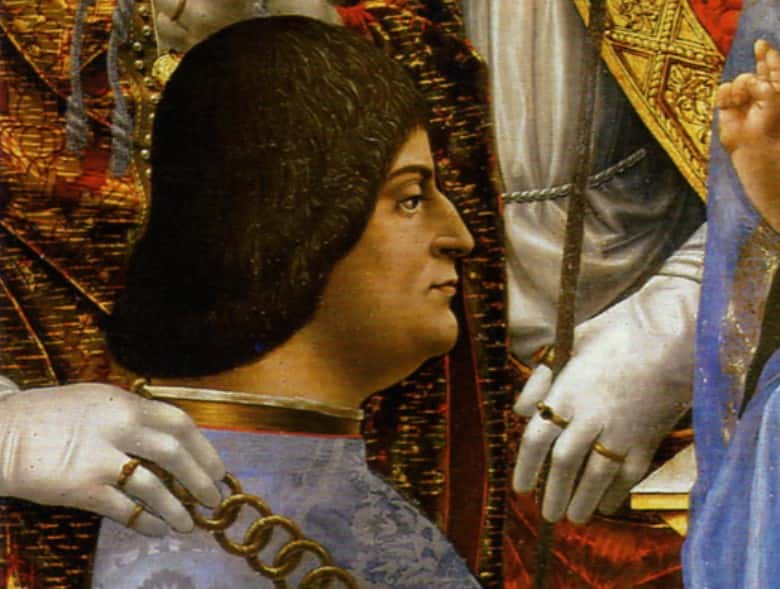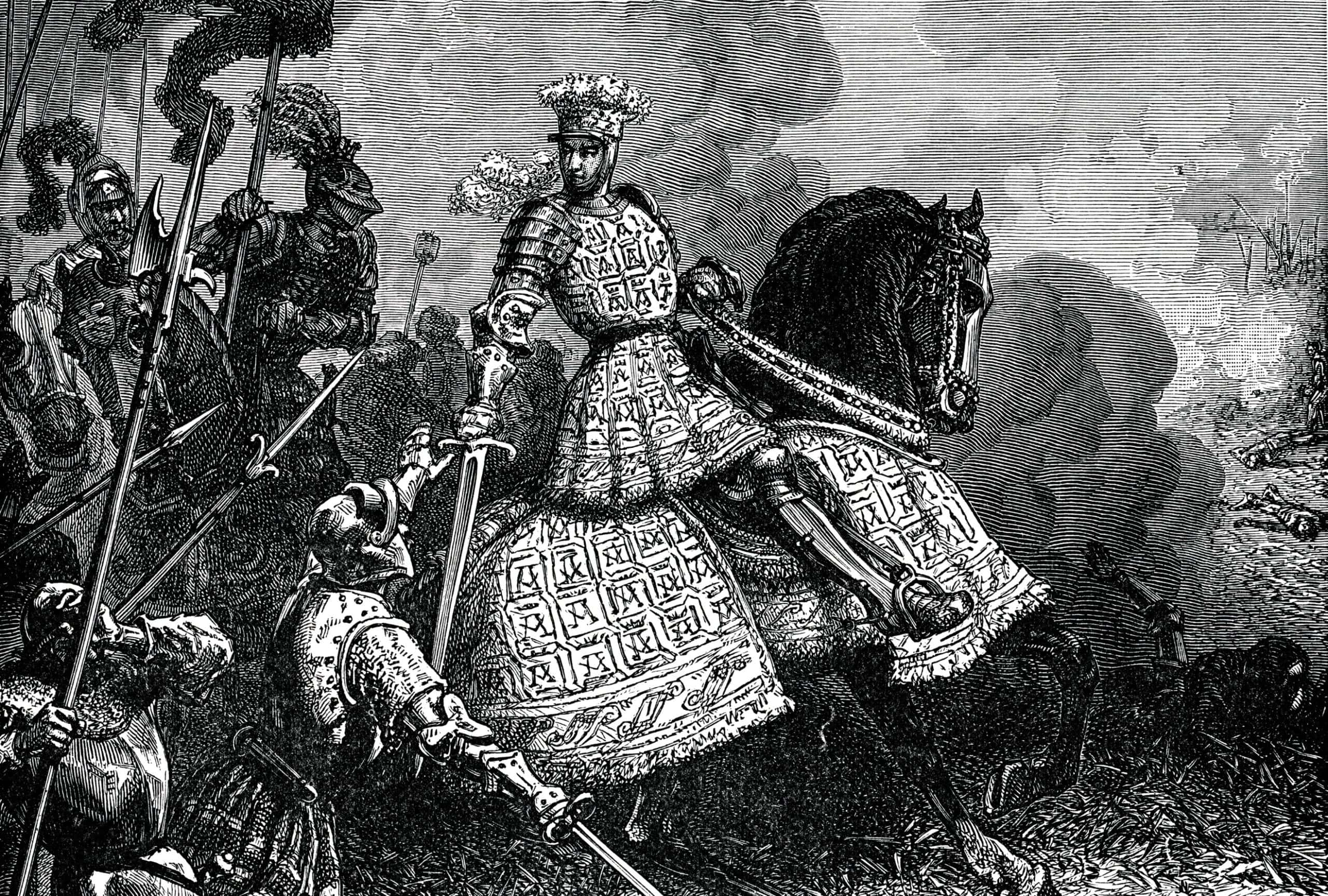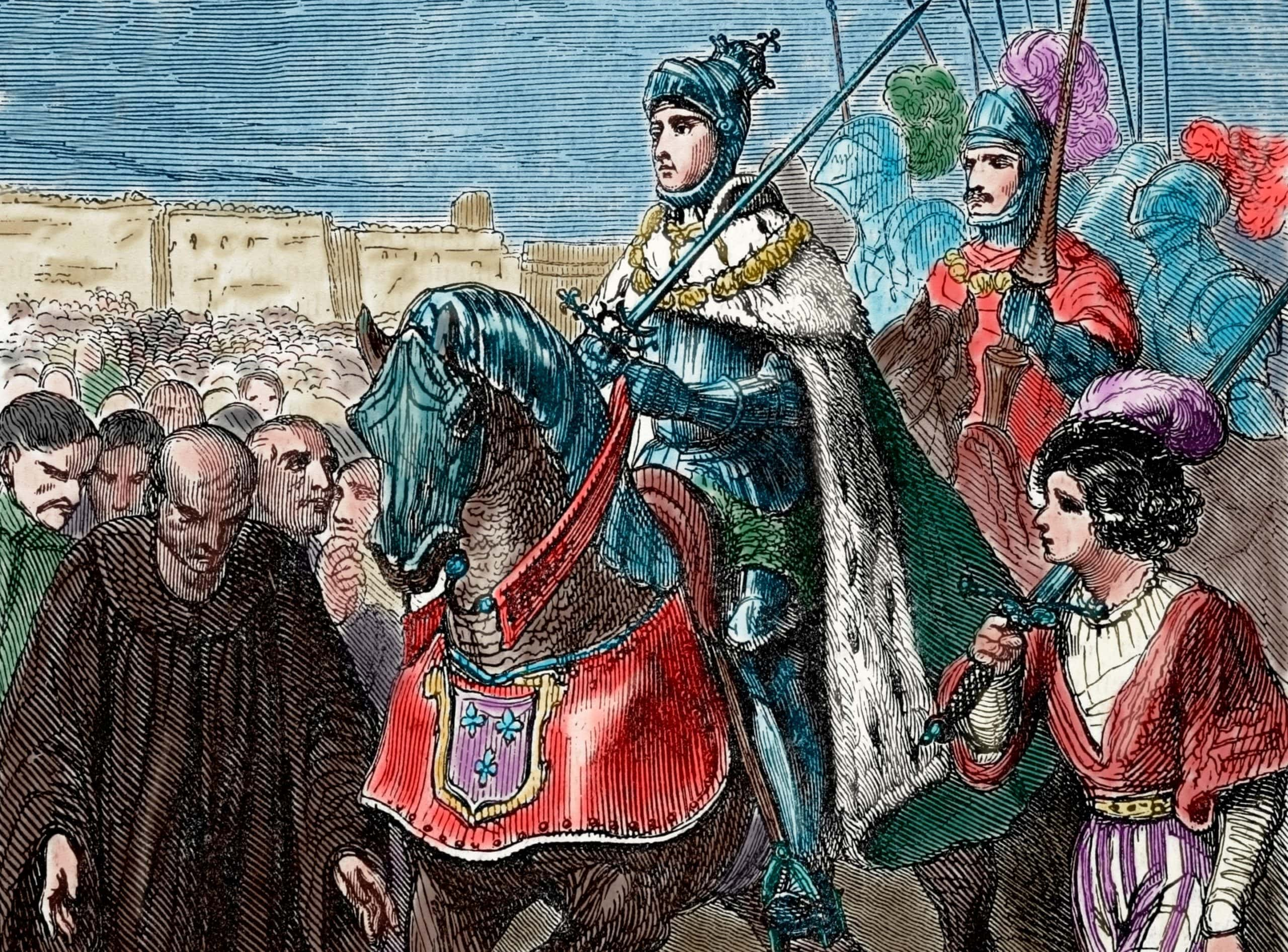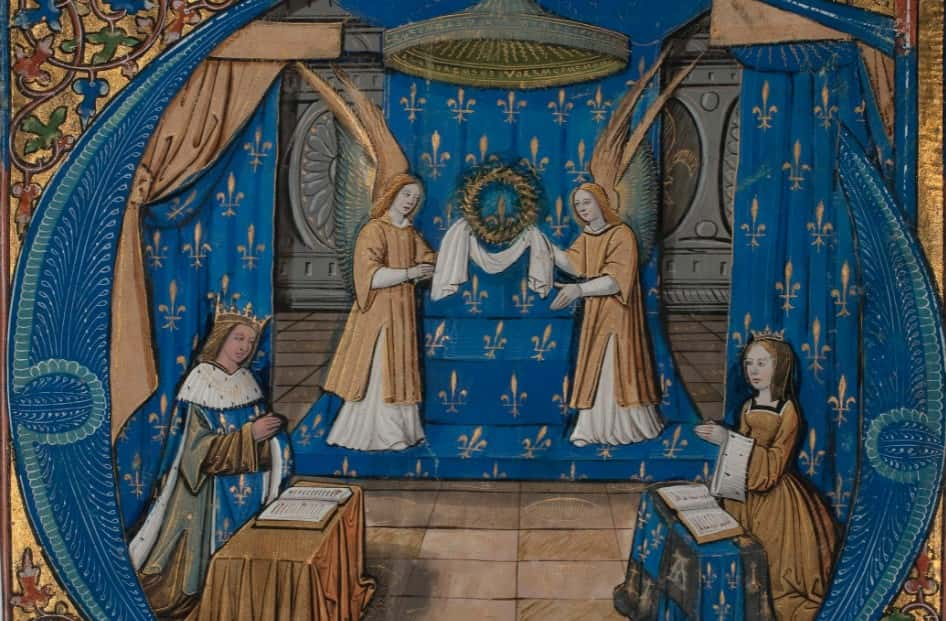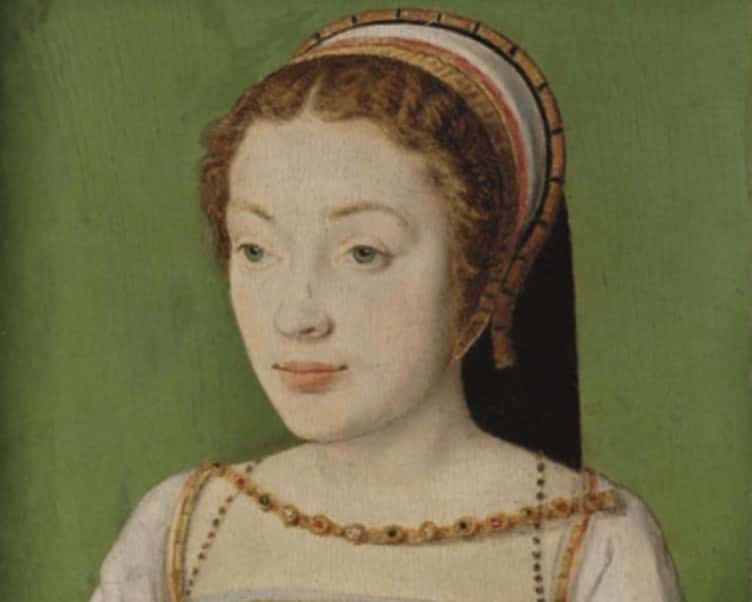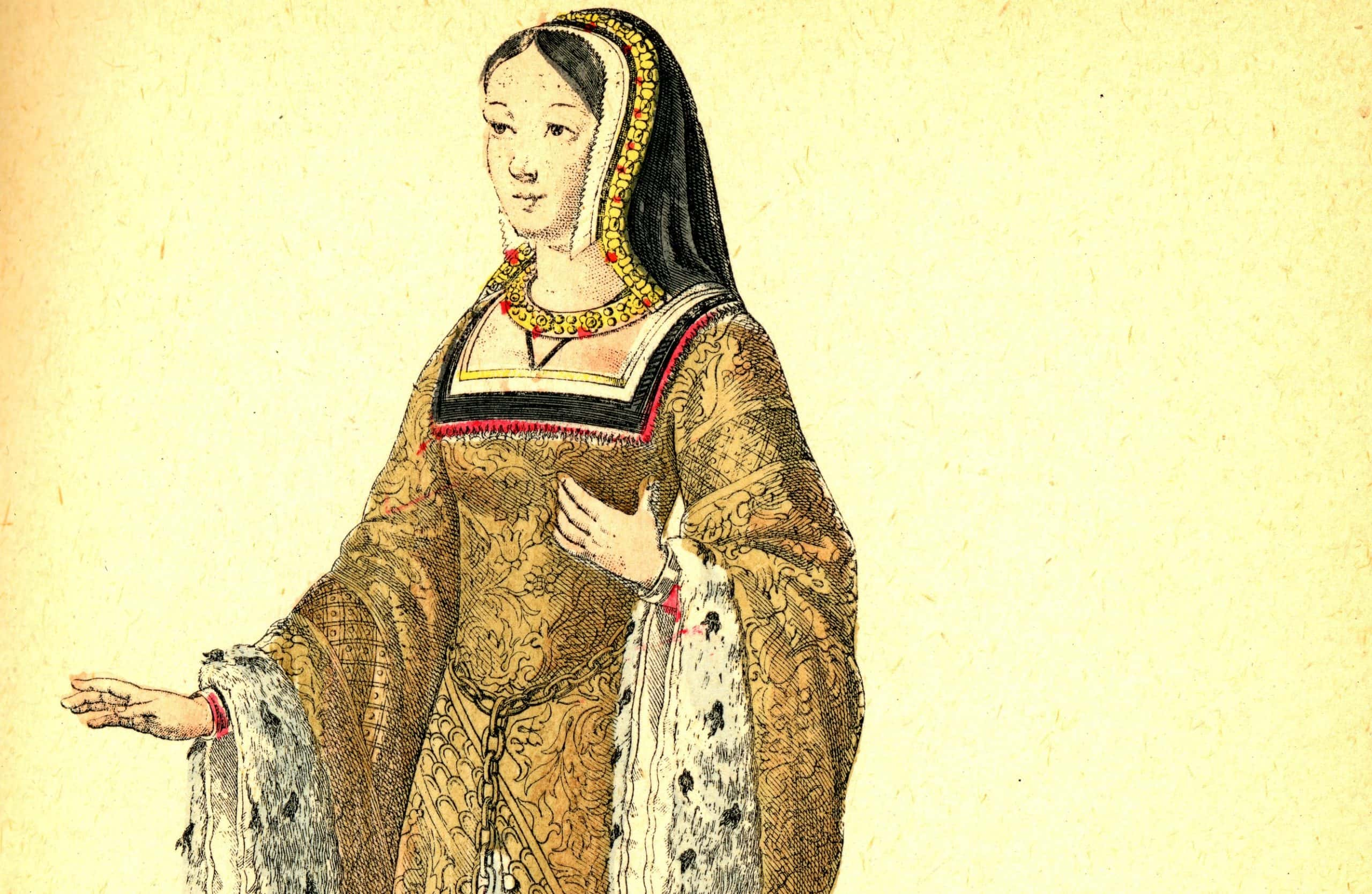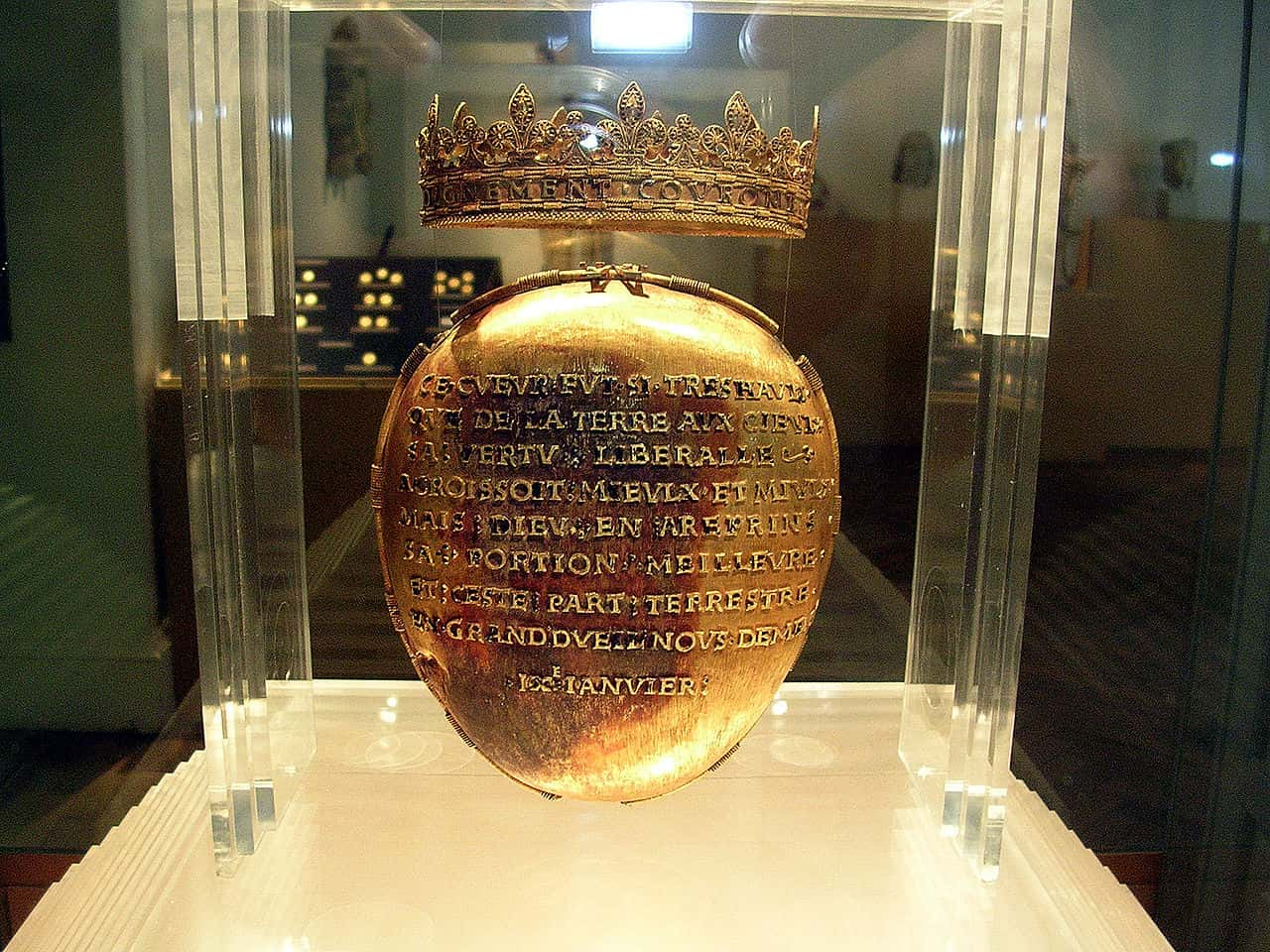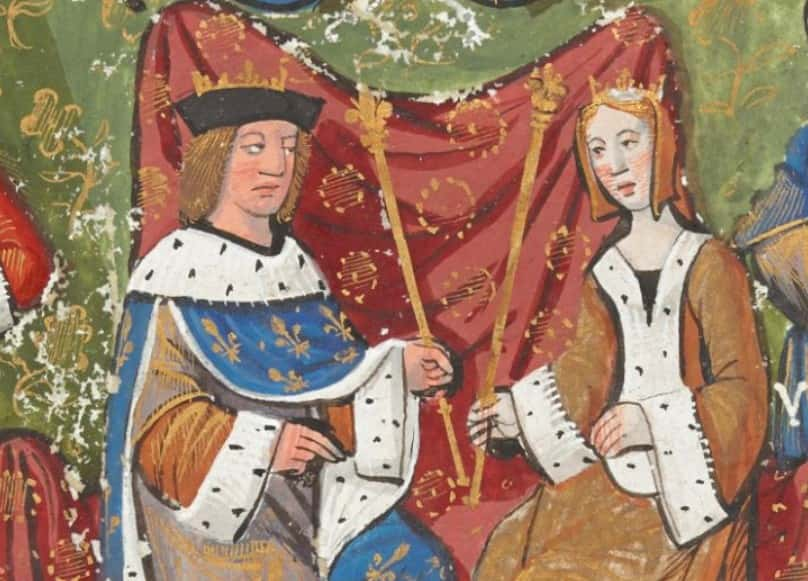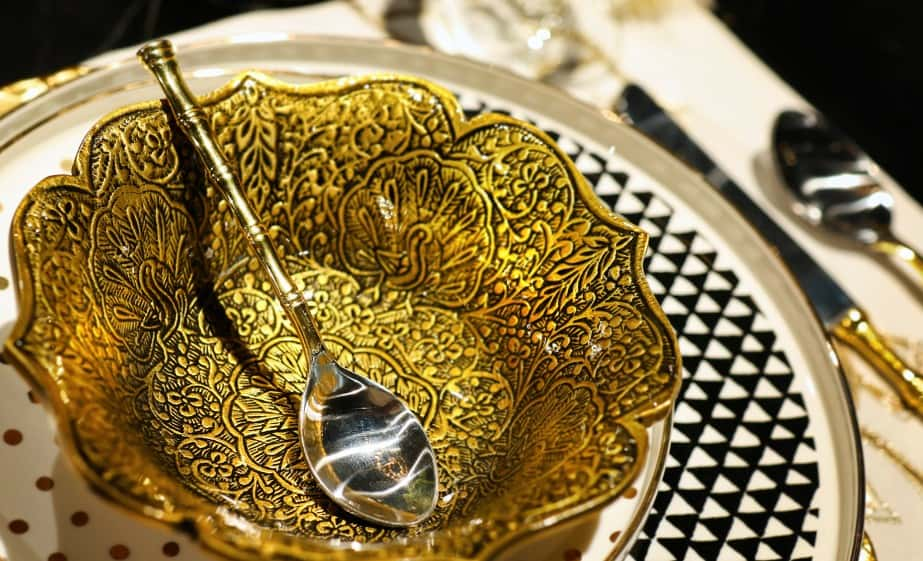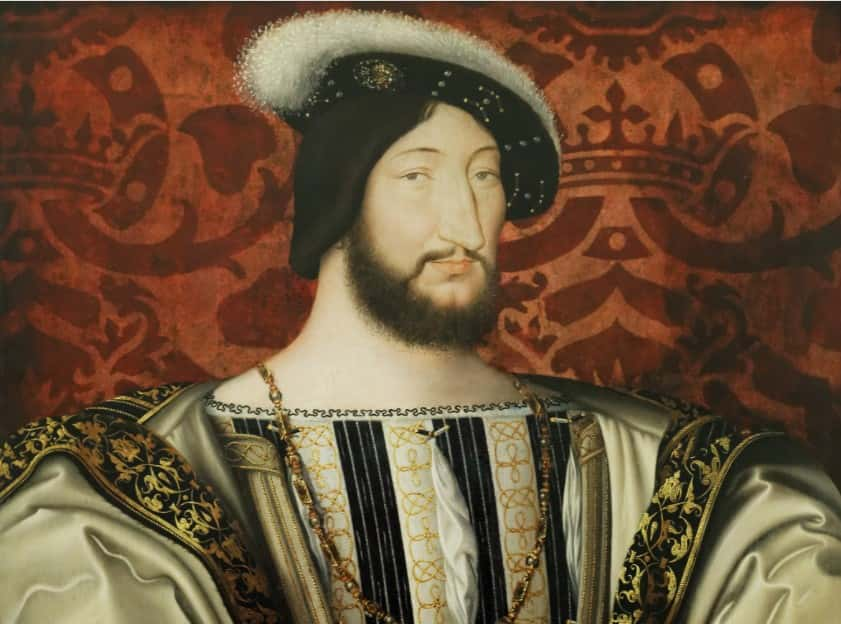Every epic story needs one thing—an inspiring hero with a compelling quest. In Louis XII, you get double your money. First of all, he wanted to reclaim Milan for France, no matter the grisly body count. Secondly, he desperately needed a male heir. Sadly, neither feat came easy to poor Louis and, in the end, his soul-searing desires led him straight to his tragic fate.
1. He Started Young
Louis XII came into this world in June 1462 as Louis d’Orléans. His home was in the lovely Château de Blois in Touraine—now called Loir-et-Cher. It didn’t take young Louis long to move up in the world: At the tender age of three, he'd already succeeded his father as Duke. However, with great power came even greater threats. Above all, there was one man determined to sabotage Louis at every turn.
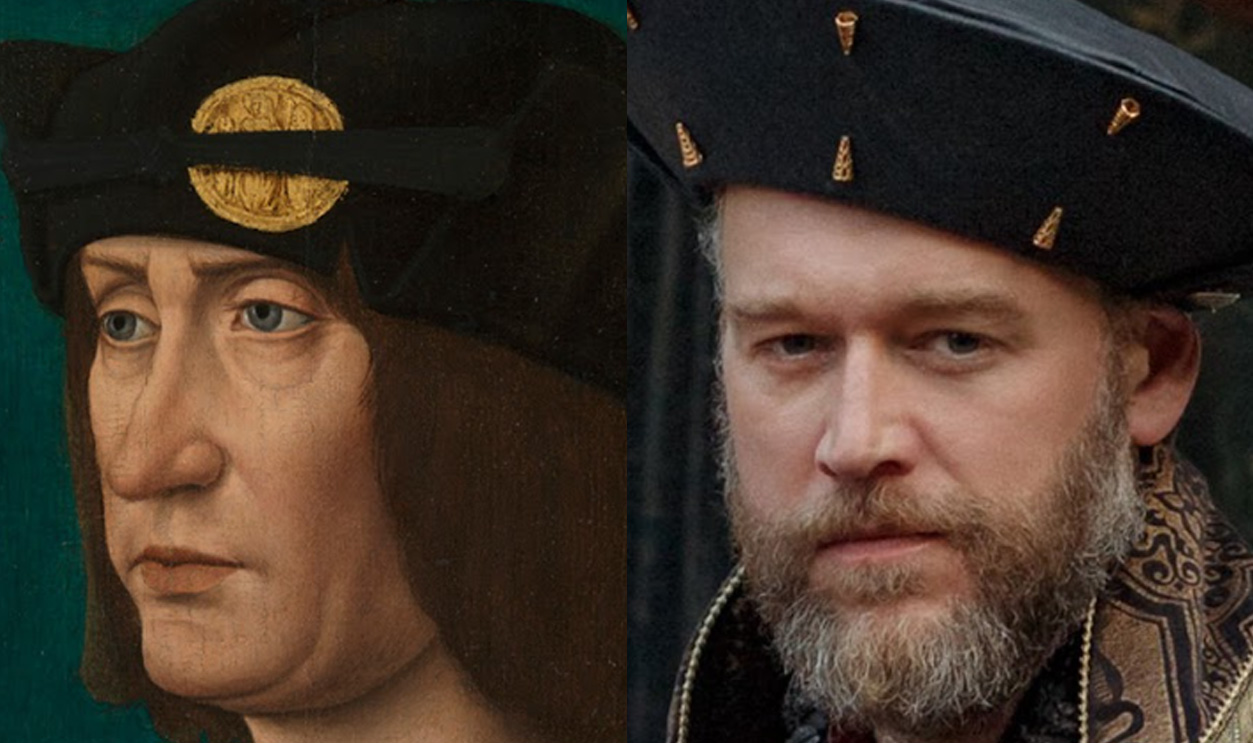
2. His Godfather Was Not A Fan
Louis' godfather was none other than Louis XI—the King of France. There was one problem, however: The king didn’t support Louis' house—the house of Valois-Orléans. In fact, the king made it his business to see to it that no royal would ever come out of this house. And when it came to barring Louis from the throne, this monarch had a nefarious plan hidden up his gilded sleeve.
3. He Reluctantly Married
Weirdly enough, the king regarded himself as a matchmaker and selected the "perfect" wife for 14-year-old Louis. However, considering their tumultuous relationship, his choice was rather bizarre: His own 12-year-old daughter, Joan. So what was the purpose of this match? Well, the king had previously stated that he never wanted Louis to be King...
...and Joan just happened to be his secret weapon.
4. There Was Something Missing
Louis' new bride had a handicap and—more important to the king's evil plan—she was unable to conceive a child. If Louis ever became king, at least he wouldn’t have any heirs to carry his line forward. So, in 1476, Louis walked down the aisle with his handicapped, sterile, young teen cousin who he clearly had no affection for. However, when it came to icing Louis out of the running, the king was just getting started.
5. He Got Overlooked
When Louis’ godfather—the evil matchmaker king—passed in 1483, our Louis was 21 years old. This was the ideal age, at least back then, for an heir to ascend the throne. Of course, considering the old King’s hatred of all things Valois-Orléans, he left the kingdom to his 13-year-old son Charles VIII. But surely this inexperienced youth couldn't reign over a country. Could he?
6. He Fought A Girl
Unsurprisingly, thirteen-year-old Charles VIII was too young to reign. In fact, the approved age back then was actually 20. Luckily, Charles had a sister and, although she couldn’t be the queen, she could be what they called "regent" and run the country until Charles was 20. So, when Louis decided to fight for his place as King, it was Anne who he had to beat.
And to his horror, she wasn't exactly an easy opponent to topple.
7. It Didn’t Go His Way
In 1485, a collection of nobility—including Louis—started a battle against Anne and the ruling monarchs of the day. They called the fight the Mad War, and it continued until 1488. In the end, Anne’s army captured Louis XII and won the battle. However, his punishment was no walk in the park: Anne brutally incarcerated Louis XII for his diabolical mission to destroy her.
Three years later, however, Anne she a huge mistake...She released and pardoned him.
8. The Cards Were In His Favor
Eventually, Anne’s brother came of age and took over from her as the reigning monarch. In a not at all creepy coincidence, he then married a woman also named Anne. However, even with a new wife by his side, his kingly duties didn't come easy. Charles and the new Anne had a definite problem on their hands—producing an heir. To be more specific, producing heirs wasn’t actually the issue—it was keeping them alive.
The childhood mortality rate back then was extremely high and all seven of Charles’ children with his wife Anne passed in infancy. And what did this mean for lucky Louis XII? Well, Charles' heartbreak was Louis' triumph.
9. He Was Next In Line
Even though Louis had fought against Anne, and even though his godfather had never wanted to see a member of the house Valois-Orléans rise to the position of King—that’s exactly what happened. Because Charles and Anne couldn't produce a male heir, Louis was legally next in line to take the throne. However, he was much older than Charles, meaning that the only way he'd get his hands on the crown was if something terrible befell the luckless king.

History's most fascinating stories and darkest secrets, delivered to your inbox daily.
10. It Didn’t Seem Likely
In 1498, Louis was 36 years old and King Charles was just 27 years old. It seemed pretty unlikely that Louis would outlive Charles, and get his turn on the throne. But life back then always seemed on the edge of calamity and illness, so, after being the monarch for just five years, King Charles had a tragic incident...with a doorpost.
11. He Got His Wish
One day, in 1498, as Charles headed out to watch a tennis match on the lawn, he bumped his head on the door. Of course, he didn’t think much of the mishap and set off to enjoy the game. After the festivities, however, the unthinkable happened: He fell into a deep coma. Nine hours later he had passed. The previously remote possibility of Louis being King was now a reality.
12. He Stepped Up
Because of his old age, some people thought Louis was a little long in the tooth to take on the kingdom. To prove them wrong, he took to his new role with unrivaled vigor. He quickly changed and improved the French system of law and enacted a people-pleasing reduction in taxes. But while business matters were attended to, he still had a very disappointing wife to consider.
13. He Needed A Way Out
Remember, Louis’ godfather had forced him to marry his sterile, handicapped cousin. Poor Louis' lineage didn't stand a fighting chance, and so something had to be done. More than anything, Louis needed to get out of his marriage to Joan. Of course, divorce wasn’t an option back then, but there was always annulment. And what was the number one reason for an annulment in 15th century France? Marrying your cousin.
14. He Had No Proof
Louis’ wife was his cousin, but proving it was actually quite difficult. Believe it or not, in 16th century France they didn’t keep official records to keep track of who was whose cousin—or aunt or uncle for that matter. They passed this kind of information on orally—not in writing. It would have been too difficult to prove that his wife was actually his cousin. And so, Louis had no choice but to return to the drawing board.
He needed another reason for annulment—and he found one.
15. He Didn’t Know His Own Birthday
Another reason to annul a marriage back then was the age of the bride and groom. Surely a 14-year-old boy and a 12-year-old girl weren’t mature enough to make such a decision. Again, however, Louis needed proof. The age of consent for boys was 14 years, but Louis fudged the truth and claimed to be only 12 at the time. Again there were no records kept about years of birth, and so Louis’ plea fell on deaf ears.
In order to end his marriage once and for all, it was time for Louis to try a third, and much darker, strategy.
16. He Gave Gruesome Details
Louis was desperate to get rid of his wife, so he went for the jugular. He told the court that his wife had a physical malformation—and shocked the court with detailed descriptions of it. Because of her deformity, Louis claimed, they hadn’t been able to consummate the marriage. Louis’ outrageous claim sent Joan into ballistics. According to her, it was a bold-faced lie—and she even had evidence to refute it.
17. He’d Boasted
Louis hadn’t really thought his plan through. In order to say he hadn’t consummated his marriage with his wife, he really needed to do some damage control. To prove him wrong, Joan found witnesses who’d heard Louis bragging one night. Apparently, Louis had said: I’ve "mounted my wife three or four times during the night". Oops. Busted.
18. He Dumped A Saint
Even though Louis’ argument for annulment was weak, Pope Alexander VI finally granted him one—for various selfish reasons of his own. Joan, after being Queen for just a brief time, had to step down as she was no longer the King’s wife. Her fate was absolutely bleak, but luckily, she made the most of it: The jilted queen got herself to a nunnery, and years later, she was made a saint.
Louis, on the other, was a free agent once more, ready to play the field. Unfortunately, his taste in women proved very questionable.
19. He Played the Field
Single and in search of a queen, Louis had only one standard on his list: A woman who could bear him that all-important heir. Remember Charles’ wife Anne? The one who’d birthed seven children who hadn’t lived past infancy? Surely she’d be the last person Louis would consider as a wife. Well, if you think that, then you don’t understand French royalty.
20. His Bride Resisted
In 1499, Louis basically dragged a reluctant Anne down the aisle. Marrying Anne was not about love, or even about childbearing. In actuality, it served a political purpose. Anne was from Brittany and marrying her created a union between France and her duchy. It was all part of Louis’ master plan. I guess he’d somehow forgotten all about needing a male heir.
Unsurprisingly, this would come back to haunt him in the end.
21. He Was Popular
Once Louis had his wife in order, he could start to do his good work. He fought for the common people by protecting them from persecution. He also somehow ensured that no civil conflicts occurred during his reign. All these things made Louis a very popular King, and it even earned him a nickname: "Father of the People". And while he excelled in fathering the nation, fathering an heir was a whole other story.
22. She Couldn’t Produce
Poor Anne was now Queen for the second time and failing miserably in the reproduction department. Despite her horrible child-bearing track record, she kept finding herself in the one position that called for her to make babies. Anne’s luck didn’t change with Louis and she was still unable to produce an heir to the throne. Sadly, her attempts were nothing short of a nightmare.
She and Louis had four more stillborn children. All hope seemed lost...that is until a miracle happened: One of her children survived.
23. He Became A Dad
In 1499, Louis finally—after giving it more than the old college try—had a living child. But there was one thing missing from this pretty little picture. You see, the child was a girl. Not a bouncing boy. A girl. As you should know by now, girl heirs could not take the throne. Louis desperately needed a male child to carry on his name and a girl just wasn't the answer.
This constant pursuit of a male heir frustrated Louis to no end—so he took his frustration out on Italy.
24. He Had An Obsession
Besides having trouble producing a male heir, Louis was also trying to knock something else off his bucket list. You see, because of his Italian paternal grandfather, Louis had always thought that Milan was his. However, he had one arch enemy that thought differently. His name was Ludovico Sforza, and he stood between Louis and the beloved city of Milan.
25. He Was A Feminist-ish
In order to pursue Milan, Louis had to have someone watching the homefront. Things like choosing ministers, giving out pensions and rewards weren’t interesting to Louis, so he did something most Kings didn’t do: He let his wife take care of them. For Louis, this was a rather modern move, but there's a good chance the man was just a simple opportunist.
26. He Prepared The Way
Now that Louis was king, he could make his dream of conquering Milan come true. There were just a few things that needed shuffling around. Louis spent the next year manipulating and negotiating treaties, alliances, and even marriages all over Europe. This included Scotland, Spain, and Switzerland. All this effort came down to the pursuit of his one goal—to take Milan for France.
27. He Attacked
Finally, on August 10, 1499, Louis’ army marched into Rocca di Arazzo in the Duchy of Milan. Louis had amassed a powerful army of 27,000 men—10,000 of them on horseback—and 5,000 of them, Swiss mercenaries. They surrounded the town, attacked, and after five hours they breached the walls. Louis' moment of glory, however, didn't come without its gruesome consequences.
28. He Sent A Message
Louis knew he had to put the fear of God into those who were protecting Milan, so he ordered his men to do something horrible. Once they had gone over the walls of Rocca di Arazzo, he told his men to slaughter the people they found inside, including civilians. Louis wanted them to know that he was serious about taking all of Milan—and this brutal message didn't go unheard.
29. He Sent Him Running
Louis’ terrifying message was heard all over the land, and towns began to surrender without a fight. Eventually, Louis’ army approached the last fortified town in Milan, Pavia. When Louis’ arch-enemy, Sforza, heard of Louis’ reign of terror, he fled. This left the coast clear for Louis’ army to march triumphantly into Pavia. Now the real work could begin.
30. He Got The Keys
In October 1499, Louis arrived in Milan as its new leader. His trusty marshal, Trivulzio, handed Louis the keys to the city. It was a huge triumph for Louis, and he must have been as proud as you can imagine. He finally had success. He had Milan. But there was still one issue left to tackle: Wasn’t he now surrounded by subjects who hated his guts? What would he do to please them?
31. He Made Frenemies
Louis was always a crowd pleaser—even when facing an enemy. He needed to make friends with these people, so he did what he did best: He lowered their taxes. It worked back in France, so why wouldn’t it work here? The people loved it and seemed content with their new king. But Louis was getting way too comfortable, far too soon. There was still trouble on the way.
32. He Faced A Retaliation
You see, Louis’ nemesis, Sforza, wasn’t giving up so easily. In January 1500, Sforza amassed an even larger army—made up mostly of Swiss mercenaries—and was marching forward to try to take Milan back. When Louis heard of this approaching threat, he left Milan in order to regroup. Once again, there was a huge battle brewing—and Louis couldn't afford to lose.
33. He Had A Worthy Enemy
Both Louis and Sforza had amassed large armies, and it would lead to a bloody battle with only one army left standing. But wait a second. If Sforza had added Swiss mercenaries to his army, and Louis had always had Swiss mercenaries in his army, wouldn’t that mean that the Swiss would be fighting against the Swiss? This weird conundrum threw a curveball at both sides.
34. The Swiss Went Neutral
The government of the Swiss Confederation got word of what was about to happen. In their opinion, it would be immoral to have a Swiss citizen fight against another Swiss citizen. So what did they do? They ordered them all home. Once the Swiss mercenaries had marched away, whoever was left with the bigger army would certainly win the battle.
35. He Had The Advantage
It turns out that Louis’ enemy Sforza, would be most affected by the loss of the Swiss mercenaries. He knew it, and Louis knew it too. Sforza hightailed it out of Milan for the second time—but this time he moved a little too slow. Louis’ army captured him and took him to their king. But when it came to Sforza, there wasn't a single compassionate bone in Louis' body: He let his enemy rot in a French prison for the rest of his life.
36. He Was A Hit
Once again, Louis marched triumphantly into Milan, and once again, he faced a crowd that needed buttering up. This time Louis gave his new subjects the gift of industry. When Sforza was in charge, he wouldn’t let farmers sell grain outside the kingdom; he preferred to keep it for themselves. Louis switched that around, and let them export, which brought the people greater income.
This won them over, no problem, and soon, Louis was a hit.
37. He Wasn’t Satisfied
For the next 12 years, Milan remained French. But Louis wasn’t through with Italy yet. He continued to vigorously take cities—through both diplomacy and force. The first one was Genoa, which fell easily. Louis then turned his eyes on Naples. To take Naples, however, he would need some backup. Sure, there was always the Swiss, but Louis looked south to make his army even more formidable.
38. He Found An Ally
Louis approached Spain with a plan to take Naples. In 1500, he offered a treaty—a secret one at that—which stated the French and Spanish would fight as one army. The proceeds were to be split down the middle. Naples would be half French and half Spanish. Sounds like a plan that couldn’t miss. Well, they did take Naples: but then the plan went bust.
39. He Made A Mess Of It
Maybe Louis hadn’t thought his plan through. If he thought that a divided Naples would actually lead to peace, he was so, SO wrong. Not a chance. By 1502, the two sides were arguing bitterly—and the Spanish were winning. The French faced disease, and a general lack of order, that Spain seemed to be immune to. It was a certifiable mess.
In 1503, Louis and the French hung their heads in defeat and left Naples.
40. He Didn’t Stop Trying
Whenever Louis was at home—and not vanquishing enemies—he and Anne would continue trying to produce a male heir. So far, they’d only had one girl survive infancy, Claude. When Anne became pregnant again, the entire Kingdom was on the edge of its seat to see whether a prince would be born. Once again, however, the cards were not in Louis' favor.
41. He Gave Up
Anne had her hands full getting her babies to survive infancy, let alone making sure they were male. To everyone's dismay, her next pregnancy served up a massive disappointment: In 1510, Anne and Louis welcomed baby Renée...a girl. Louis was about ready to throw in the towel, but he did have daughters, and surely they were good for something.
42. He Used His Daughter
Louis quickly included his daughter Claude in his plans for the throne. He knew who the next King would be if he didn’t produce a male heir: Francis of Angoulême. Louis planned to betroth his daughter to Francis. Maybe Louis couldn’t have a son succeed him as King, but he could have a son-in-law do it instead. This plan was the perfect solution...until the queen got in the way.
43. He Didn’t Tell His Wife
Louis had very precise plans for his daughter—but he hadn’t let his wife in on them. Anne had her own ideas of how to use their daughter for their benefit. In fact, she was adamantly against the marriage of Claude to Francis. Louis and his wife couldn’t agree on which marriage would prove most beneficial and came to an upsetting stalemate. Luckily, an unforeseen twist of fate solved their problem.
44. He Won By Default
Louis and Anne were in heated negotiations about their daughter's marriage prospects when tragedy struck. Supposedly, because of her many miscarriages, Anne suffered a kidney stone attack. Sadly, this was not a fleeting ailment, and on January 9, 1514, Anne passed. She was just 36 years old. However, Anne was one clever lady. She'd already made sure to include her wishes for Claude's marriage in her will.
45. He Saw An Opportunity
Louis saw what Anne had written in her will for Claude, and promptly ignored it. With Anne out of the picture, Louis was free to pursue his own passion project, and he wasted no time in executing it: The wedding of Claude and Francis took place in 1514—just a few months after Anne’s passing. Francis was 20 and Claude was 15. With one successfully wedded daughter, Louis began dreaming of church bells himself.
46. He Got A Young One
Not only did Anne’s passing open the door to Louis handling their daughters as he saw fit, but it also opened another door: The potential for a third marriage. This time, Louis thought he'd try his luck with an English bride. Mary Tudor was only 18 years old when 52-year-old Louis took her as his wife. You see, Louis was still desperate to have a son, and young Mary helped keep the dream alive.
But despite his blushing bride, Louis couldn't escape the horrors of old age.
47. He Watched His Weight
Louis had a pressing ailment to attend to; he knew that he was suffering from gout and he had to act quickly to remedy it. To do this, he followed a strict diet to combat the illness. For six years, he deprived himself of all the delicious and rich French foods he adored. His dedication to his health was quite impressive. And then one day, something made him chuck the diet straight out the window.
48. He Over-Indulged
Apparently, when Louis began married life with his blushing young bride, his diet imploded. While it could have been the return of his gout that pushed Louis’ health over the edge, others say it was the constant romps in bed that took its toll. I’d say it was a combination of the two. Whichever it was, Louis XII passed on New Year’s Day 1515—just a few months after his wedding.
49. He Wasn’t Much Of A Success
All of Louis’ life, he seemed intent on two things: Taking over as much of Europe as he could and having a son to replace him as king. While he had some success with the former (even though he lost both Milan and Naples in the end), he had even less success with the latter. However, throughout all these trials, Louis had been keeping a very dark secret...
50. He’d Had One All Along
Back in 1484, when Louis was 22 years old, he had a baby out of wedlock. There is some dispute as to who the mother was: A woman from another house? A lowly laundress? We'll likely never know. But we do know this: the child did survive infancy, and the child was male. So, in effect, Louis had a male heir all along—just not one that he could publicly own up to.
Ironically, Louis’s son Michel Bucy, passed in 1511—four years before his father. But don't worry, even in death, there was still hope for Louis.
51. Success At Last
Louis made the right move by having his older daughter Claude marry Francis, the next King of France. Claude ended up bearing seven children with him—although only two of them managed to live past 30. One of the survivors was Henry, who ascended to the throne in 1547. So, in the end, Louis' still managed to secure his legacy.

